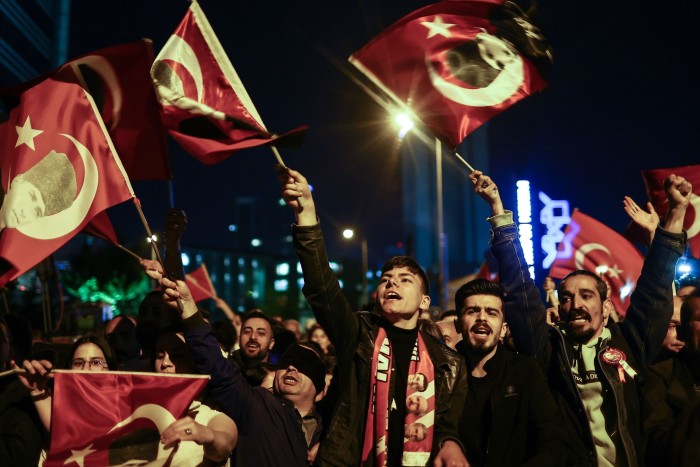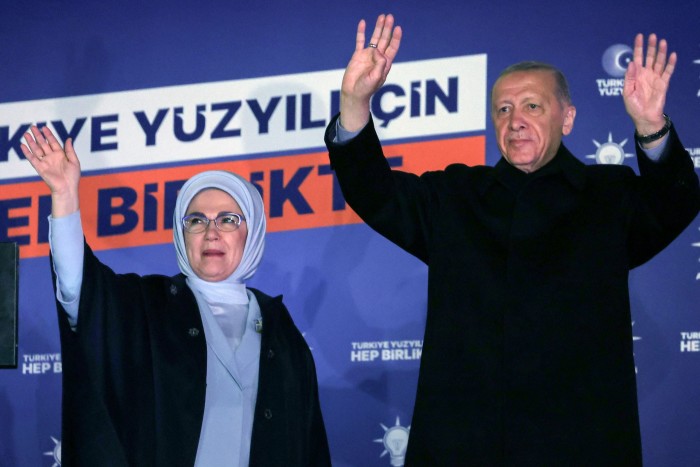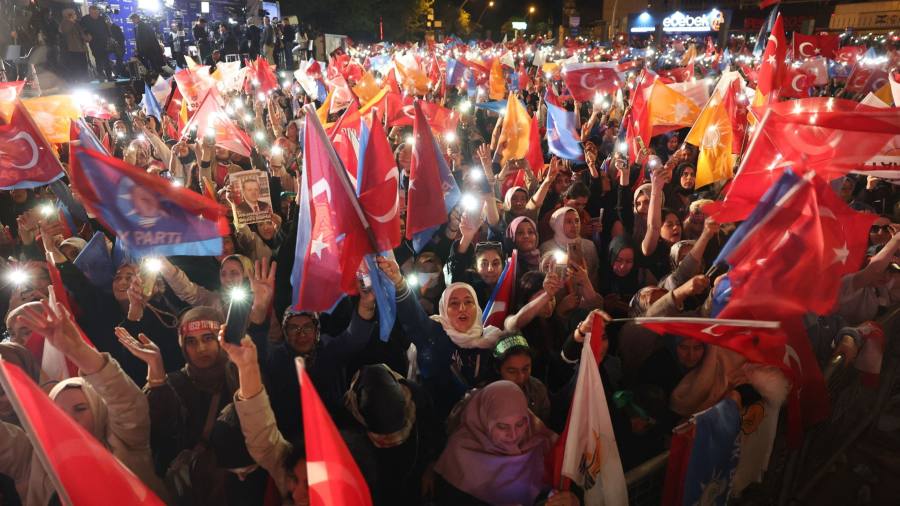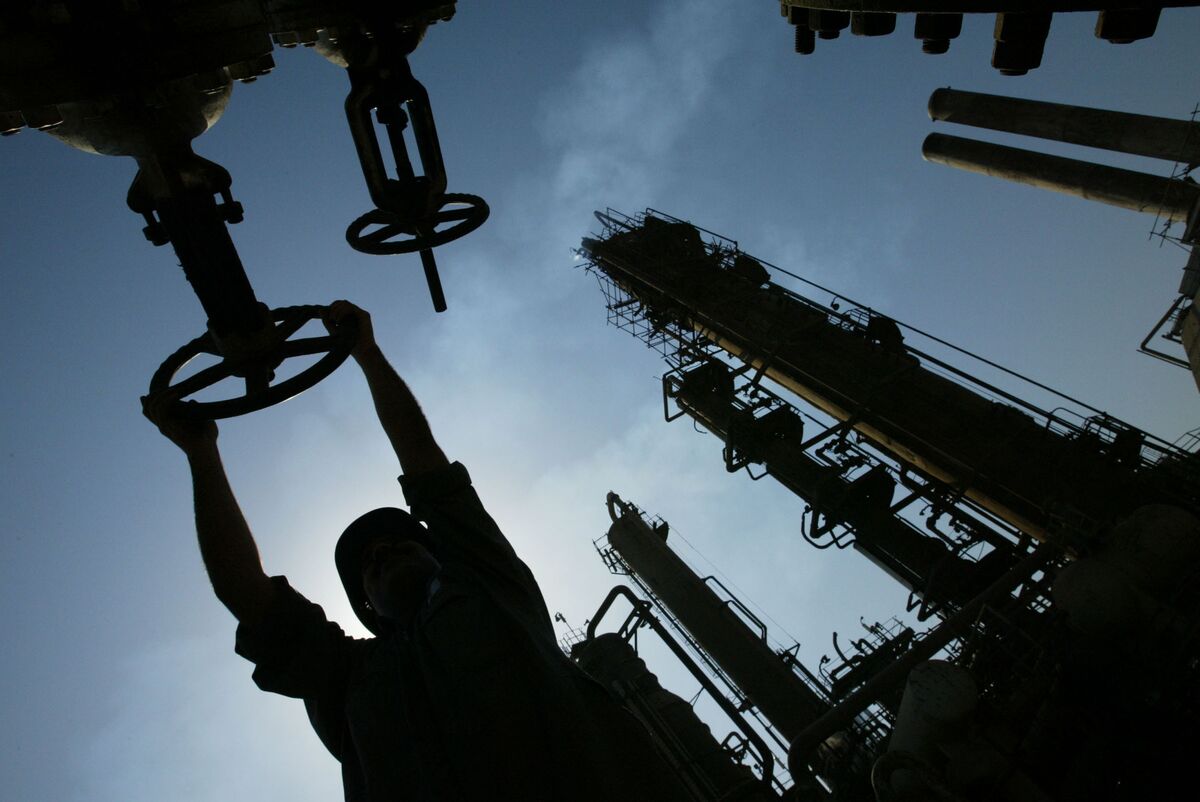Erdoğan holds upper hand as Turkish election goes to run-off
Turkey’s veteran leader Recep Tayyip Erdoğan appeared on course to extend his rule into a third decade, as he entered a presidential run-off having comfortably beaten his main opponent in the first round.
After a hard-fought campaign that had raised hopes of an opposition breakthrough, Erdoğan secured 49.5 per cent of votes in the presidential race, well ahead of his main rival Kemal Kılıçdaroğlu with 44.9 per cent, according to Turkey’s election authority.
With no candidate securing more than 50 per cent, the Supreme Election Council announced on Monday that Erdoğan and Kılıçdaroğlu will go to a second round of voting on May 28, a run-off contest where the incumbent is the clear favourite.
As well as building a lead of more than 2mn votes over Kılıçdaroğlu in the presidential race, Erdogan’s rightwing coalition appeared on course to win an outright majority in the Turkish parliamentary election, bolstering his position in any run-off.

Erdoğan’s performance in Sunday’s vote overturned opinion polls that gave Kılıçdaroğlu a substantial lead in the final days of the bitterly fought campaign. “Do not fall into despair,” Kılıçdaroğlu tweeted on Monday, adding: “we will stand up and take this election together”.
The 74-year-old opposition leader had built a broad alliance of centrists, nationalists and conservative parties and had outside support from Turkey’s main Kurdish bloc in his bid to end what he calls Erdoğan’s “one-man rule”.
The rising odds that Erdoğan’s unorthodox economic policies will continue knocked the country’s financial markets, which had rallied late last week after the polls gave Kılıçdaroğlu an edge.
The cost to protect against a default on Turkish debt leapt Monday, with the spread on five-year credit default swaps jumping more than 100 basis points to 608bp, the highest level since November, according to Bloomberg data.

Turkey’s equities market, dominated by local investors, also dropped, with the benchmark Bist 100 index sliding 3.1 per cent and the banking sub-index down about 8.3 per cent. The lira remained near a record low.
“Markets will be nervous between the first and second rounds, as Erdoğan’s economic policies just do not add up,” said Timothy Ash, an emerging markets strategist at BlueBay Asset Management.
Investors have been fretting over Erdoğan’s unorthodox economic policies, including cutting interest rates despite scorching inflation.
There are also deep concerns about the country’s falling foreign exchange reserves and a boom in special savings accounts that would require the government to pay up if the lira suddenly drops.

Cost of living pressures, a devastating earthquake that killed more than 50,000 people in February and unhappiness with Erdoğan’s authoritarian style of rule had invigorated an opposition that believes it has its best chance yet to wrest control from Turkey’s longest-serving leader.
But Erdoğan again mobilised his support base with a focus on wedge issues, including the opposition’s tacit co-operation with a pro-Kurdish party that he accuses of terrorism links, as well as generous wage rises and other giveaways.
Jan Petersen, who led a Organization for Security and Co-operation in Europe election observation mission, said at a press conference on Monday that while Turks were mostly able to vote freely, Erdoğan and his allies enjoyed several unfair advantages.
“Public broadcasters clearly favoured ruling parties and candidates,” Petersen said, adding that “the majority of private national TV channels … were also clearly biased toward the ruling parties in their coverage”.
He also criticised Turkey’s government for putting “pressure on [some] opposition politicians and parties” and said the election authorities’ work was “marked by a lack of transparency, inadequate communications and concern over independence.”
Erdoğan stopped short of declaring victory overnight in a speech from the balcony of his Justice and Development party (AKP) headquarters, the traditional venue he has used to celebrate most of his party’s dozen or so previous wins.
The president appeared confident, singing a pop tune to thousands of flag-waving supporters and declaring: “We are already ahead of our closest rival [and] expect this figure to increase with official results.”
A simultaneous parliamentary election gave Erdoğan’s rightwing alliance a comfortable majority, which will help him retain his tight grip over the economy and other facets of Turkish life if he wins the run-off.

A third-party candidate, the ultranationalist Sinan Oğan, received 5.2 per cent and was forced out of the race. Oğan said he was open to negotiations with both Erdoğan and Kılıçdaroğlu to deliver his voters in the second round. But he said any deal would require sidelining the main pro-Kurdish movement, which won seats in parliament as the Green Left party — a constituency Kılıçdaroğlu needs in any second challenge of Erdoğan.
Kılıçdaroğlu’s allies made repeated complaints on Sunday night about the reporting of the vote count, claiming state media was attempting to “deceive” the public by flattering Erdoğan’s position. But the opposition, which initially claimed it was significantly ahead of Erdoğan, toned down the objections as the vote count advanced.
Additional reporting by Mary McDougall in London




